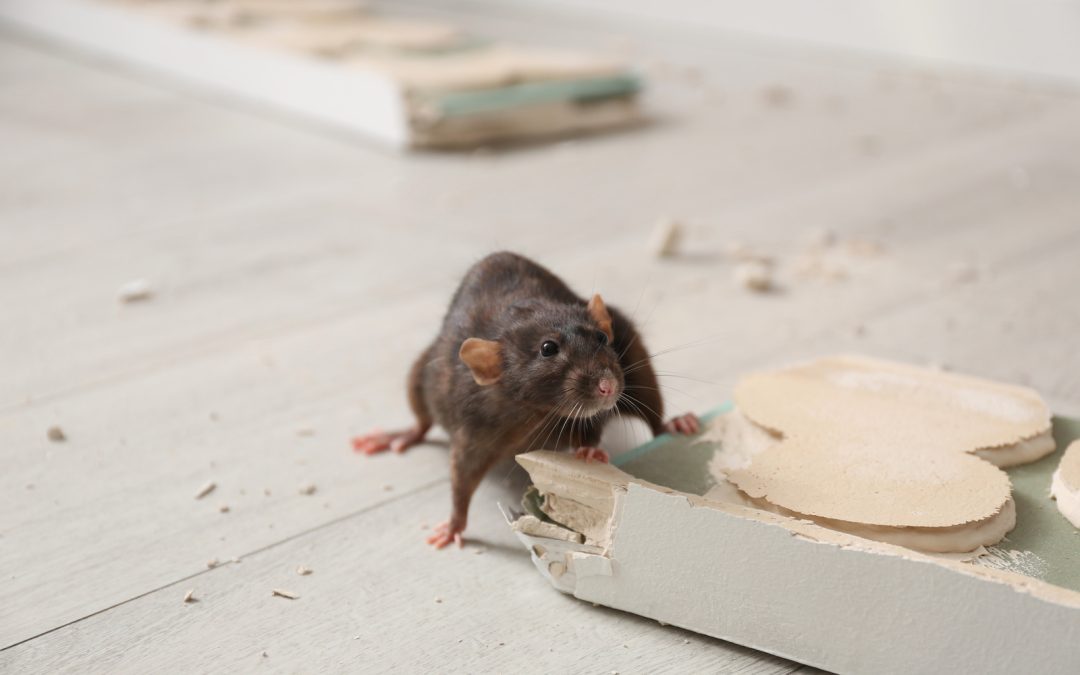In our rapidly evolving world, ensuring food safety has never been more critical. One of the most innovative solutions emerging in this field is AI pest protection. By integrating artificial intelligence into the realm of pest control, businesses can significantly enhance their food safety audits and maintain the highest standards. But what exactly does this technology entail, and how can it revolutionize the food industry?

Understanding the Basics of AI Pest Protection
At its core, AI pest protection involves using advanced algorithms and machine learning to detect and manage pest activity. This technology allows for real-time monitoring and provides actionable insights that help prevent infestations before they become a significant threat to food safety. By leveraging AI, businesses can reduce the risk of contamination and ensure compliance with stringent food safety regulations.
The Role of AI in Food Safety Audits
Food safety audits aim to evaluate a facility's compliance with industry standards. With AI pest protection, these audits become more efficient and accurate. AI systems can continuously analyze data, identifying patterns and potential risks that human inspectors might miss. This proactive approach not only improves safety measures but also enhances the overall quality of audits.
Benefits of Using AI for Pest Control
One of the primary advantages of AI in pest management is its ability to predict and prevent infestations. By analyzing historical data and current conditions, AI can forecast pest behavior and suggest preventive measures. This predictive capability helps businesses maintain a pest-free environment, ultimately protecting their products and reputation.
Additionally, AI-driven systems can operate 24/7, providing continuous monitoring without human intervention. This constant vigilance ensures that any pest activity is detected immediately, allowing for swift action to be taken. For more insights on automated pest control, read our article on automated rodent control in warehouses.
Implementing AI Pest Protection in Your Business
For businesses looking to integrate AI pest protection into their operations, the process begins with selecting the right technology. It's essential to choose systems that are compatible with your existing infrastructure and capable of meeting your specific needs. Once implemented, regular evaluations and updates are crucial to ensure the technology remains effective.
In addition to technological integration, staff training is vital. Employees must understand how to interpret AI data and respond appropriately to alerts. By equipping your team with the necessary skills, you can maximize the benefits of AI pest protection. Learn more about integrating smart pest solutions in our article on smart pest alert integration.
Challenges and Considerations
While the benefits of AI in pest control are substantial, there are challenges to consider. Initial setup costs can be high, and businesses must be prepared to invest in both technology and training. Additionally, ensuring data privacy and security is paramount, as AI systems often handle sensitive information.
Moreover, it's crucial to work with reputable vendors who offer reliable products and support. Partnering with experts in the field can help you navigate potential pitfalls and optimize your pest management strategy. For a comprehensive guide on AI pest control strategies, explore our article on AI pest control strategy for food chains.
The Future of AI in Food Safety
The integration of AI in pest control is just the beginning of a broader trend towards using technology to enhance food safety. As AI continues to evolve, we can expect even more sophisticated systems that offer greater accuracy and efficiency. This technological advancement will undoubtedly set new standards in the food industry, ensuring safer, more reliable food production processes.
For businesses willing to embrace this change, the future holds immense potential. By investing in AI pest protection today, companies can not only improve their current operations but also position themselves as leaders in food safety innovation. To learn more about the impact of AI on food safety audits, visit Western Pest.

FAQ Section
1. How does AI improve pest control?
AI enhances pest control by providing real-time monitoring and predictive analytics, allowing for early detection and prevention of infestations.
2. What are the cost implications of implementing AI pest protection?
While initial setup costs can be significant, the long-term savings from reduced pest damage and improved food safety compliance often justify the investment.
3. Can AI systems replace human inspectors in food safety audits?
AI systems complement human inspectors by providing continuous data analysis and insights, but human expertise is still essential for interpreting results and making informed decisions.
This article contains affiliate links. We may earn a commission at no extra cost to you.
